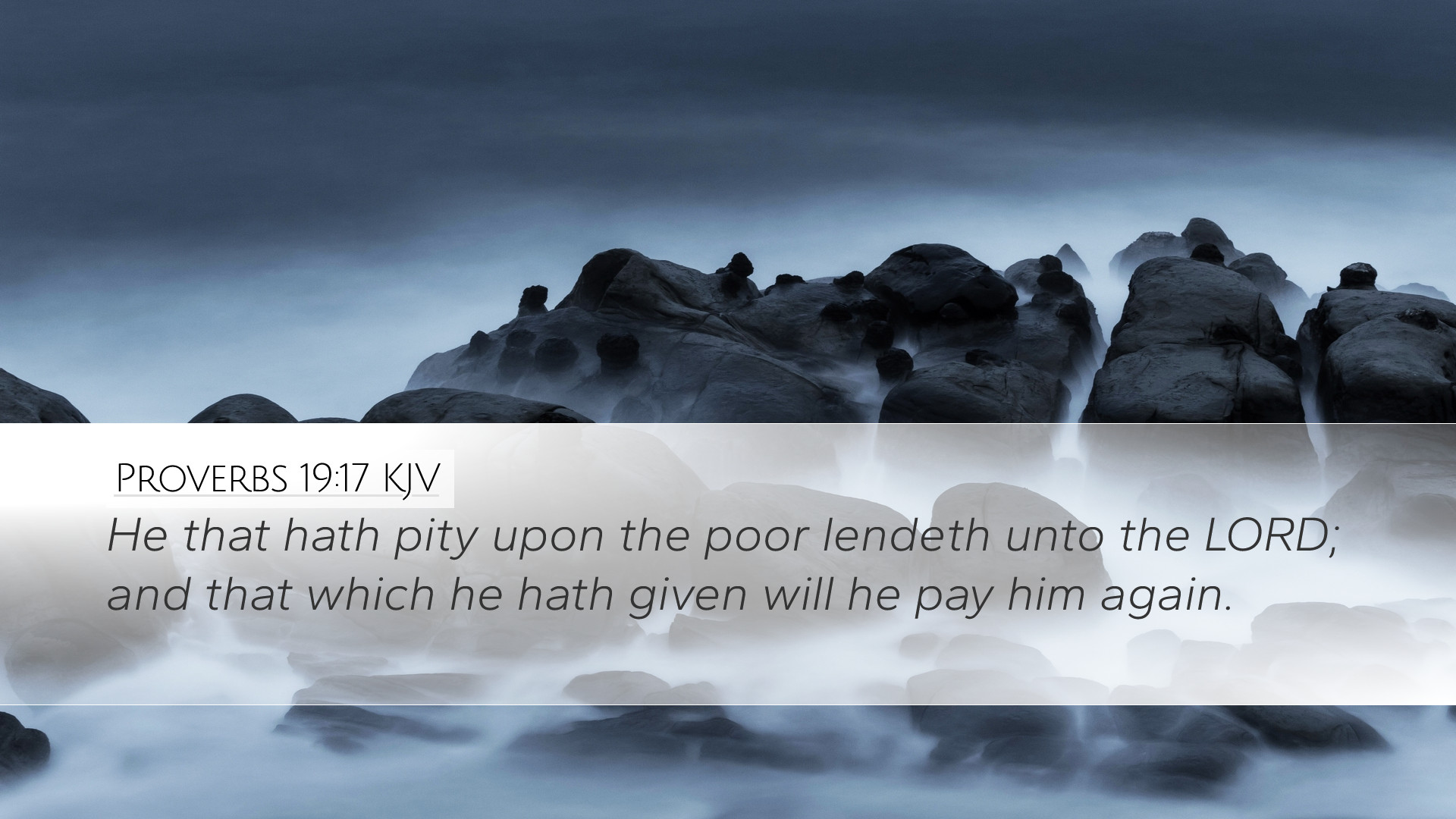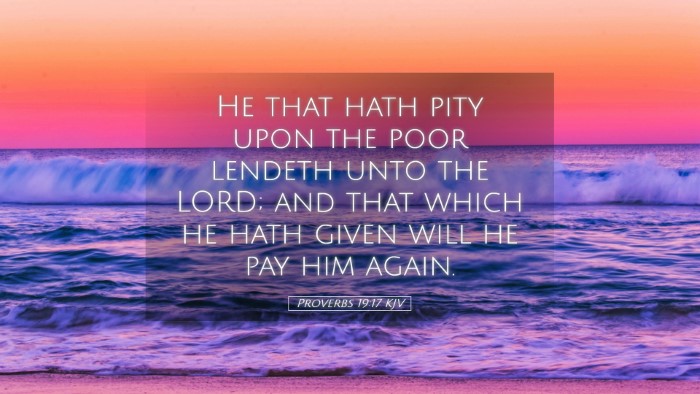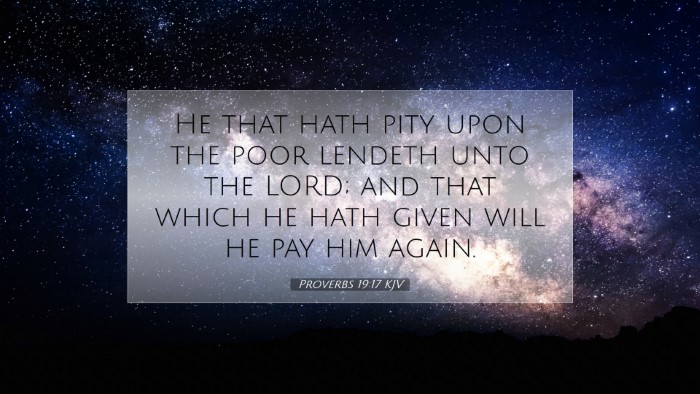Commentary on Proverbs 19:17
Proverbs 19:17 states: "He who is gracious to a poor man lends to the LORD, and He will repay him for his good deed." This verse encapsulates a profound biblical principle regarding charity, compassion, and divine reward.
Contextual Understanding
This proverb is situated within a larger collection of wise sayings that impart moral guidance and reflections on righteous living. The teachings in Proverbs often juxtapose the behaviors and fates of the wise versus the foolish, the rich versus the poor, and the generous versus the self-centered.
Insights from Matthew Henry
Matthew Henry emphasizes the idea that when one shows kindness to the needy, it is as if they are lending to God Himself. This highlights the spiritual significance of acts of charity:
- Divine Lending: Henry interprets “lending to the Lord” as an acknowledgment that God values our generosity towards the poor as a genuine investment in His kingdom. The LORD, in essence, receives our kindness to others as if directed to Himself.
- Assured Reward: The promise of repayment signifies that God sees and remembers our good deeds. This assurance serves both as motivation and comfort to those who are generous, pushing them towards acts of charity even when the world may seem indifferent.
Insights from Albert Barnes
Albert Barnes mirrors Henry’s sentiments while providing additional layers of meaning to this verse:
- Relationship with the Poor: Barnes notes that our treatment of the poor is not merely an act of kindness; it is indicative of our relationship with God. Our willingness to help those in need reflects our understanding and acceptance of God's grace in our own lives.
- God’s Justice: The recompense from God is not always immediate; nevertheless, Barnes asserts that God’s justice is certain. He encourages believers to continue in acts of charity, trusting that God will reward them in His timing and according to His wisdom.
Insights from Adam Clarke
Adam Clarke provides an insightful commentary reflecting on the implications of being gracious towards the poor:
- Moral Obligation: Clarke posits that being kind to the poor should be viewed as a moral obligation stemming from a loving heart. He underscores that true religion produces a compassionate spirit towards those less fortunate.
- God's Provision: Through acts of kindness, believers channel God's provision into the lives of the needy. Clarke encourages readers to trust that this provision extends back to the giver, showcasing God’s abundant nature in meeting the needs of His faithful servants.
Theological Reflections
The theological implications of Proverbs 19:17 are significant. The principle that our generosity towards the poor equates to service to God challenges societal norms where wealth and status often dictate the value of individuals. Instead, Scripture calls for the recognition of inherent dignity in every person, especially the marginalized.
Charity as Worship
This passage can be understood as a framework for realigning worship with action. Our hearts are measured by our attitudes toward those in need. How we respond to the poor is a reflection of our reverence for God and our understanding of His grace in our lives.
Understanding Divine Economy
God’s economy often contradicts worldly reasoning. While society might lean towards profit and gain, the biblical narrative shows that true wealth lies in acts of kindness. The statement that lending to the poor is lending to the Lord flips conventional wisdom, encouraging believers to place their trust in God’s provision.
Practical Applications
For pastors, students, theologians, and Bible scholars, this verse prompts profound reflection and action:
- Encourage Generosity: Teaching should stir congregations to develop a culture of generosity, reminding them that every act of kindness towards the needy is valuable in God’s eyes.
- Foster Awareness: Develop programs that focus on understanding the realities faced by the poor and how the church can respond effectively, therefore living out the implications of this verse.
- Examine Heart Motives: In preaching and teaching settings, highlight the importance of examining personal motives when engaging in acts of charity. Is it for recognition or out of genuine Christian love?
Conclusion
Proverbs 19:17 serves as a profound reminder that our interaction with the poor is a direct reflection of our relationship with God. As we view charity not merely as a duty, but as an investment in the Lord’s work, we cultivate a life marked by generosity that echoes the heart of Christ. The call to be gracious toward the needy is as much about our love for them as it is about our love and stewardship towards God.


